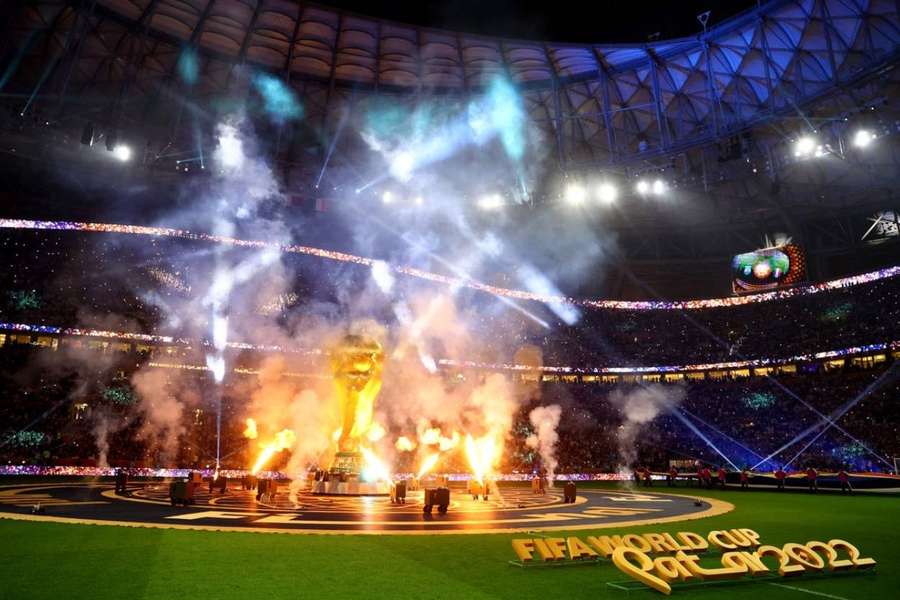Questions remain over Qatar's growing influence as World Cup ends

Argentina defeated France on penalties in a pulsating match dominated by two talismanic strikers who play their club soccer for a team owned by the Gulf Arab state that has earned huge wealth in recent decades from natural gas exports.
A capacity crowd of nearly 89,000 watched the spectacle in one of several stadiums built specially in the country of just three million people, the first Arab country to host the tournament.
The tournament polarised opinion long before it kicked off last month - with critics of Qatar's treatment of foreign workers, its ban on homosexuality and its curbs on political expression saying that money trumped ethics when it was picked as host.
Qatari officials, who were stung by the criticism and say they have taken steps to address the situation of foreign workers since Doha was granted the hosting rights in 2010, have been delighted by way the tournament panned out.
"The most important thing to remember is the World Cup transcends sports and it plays an exceptional role in uniting people and countries," said Qatar's ambassador to the United Nations Sheikh Alya al-Thani at a ceremony marking the handover to the 2026 hosts in North America.
State news agency QNA said on Sunday that 1.4 million people visited Qatar during the World Cup. That number is higher than pre-tournament estimates and a sharp jump on the one million reported two days earlier by Qatar's World Cup authorities.
On the pitch, French striker Kylian Mbappe and Argentina's Lionel Messi, who both play for Doha-owned Paris St Germain, shared five goals in the 3-3 draw, before Argentina triumphed 4-2 on penalties.
Mbappe won the Golden Boot as the tournament's top scorer with eight goals. Argentina captain Messi, just one behind him with seven, was wrapped in a traditional Gulf cloak by Qatar's ruler Sheikh Tamim bin Hamad al-Thani before Tamim handed him the World Cup trophy.
Controversy
Qatar's hosting of the World Cup was part of a careful strategy to elevate its global profile and influence, but which also put its human rights record into focus.
In May, a coalition of rights groups including Human Rights Watch and Amnesty International called on Qatar and soccer's governing body FIFA to establish a compensation fund at least equivalent to the $440million World Cup prize money for workers, including some who helped build the tournament stadiums, who have suffered abuses or died in Qatar.
Neither FIFA nor Qatar agreed to establish the fund.
Others, like the UK-based labour rights charity Equidem called for the establishment of an independent migrant worker centre in Qatar to allow freedom of association and to overhaul the relationship between workers and employers in the Gulf Arab state.
Qatar has not yet established such a centre.
Qatari authorities say the decade-long criticism of their country has been unfair and misinformed, pointing to labour law reforms enacted since 2018 and accusing some critics of racism and double standards.
"We've endeavoured for this tournament to be an accelerant to improve the conditions on labour reforms because the situation previously was not acceptable despite the best intentions," said Hassan Al Thawadi, Secretary General of the Supreme Committee for Delivery and Legacy, Qatar’s World Cup organiser, in an interview broadcast on Sky News.
Thawadi said a support and insurance fund for workers would look into incidents where workers had died.
"And that will continue beyond the World Cup," he said.
The questions surrounding this World Cup will never go away and for some it will remain tainted permanently. The football on the pitch - especially the final - was exactly what the Qatari authorities would have wanted before the tournament began.

